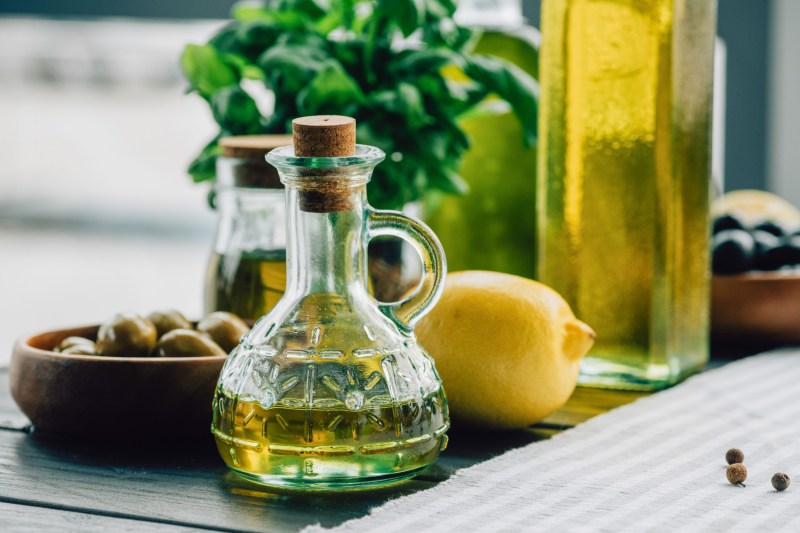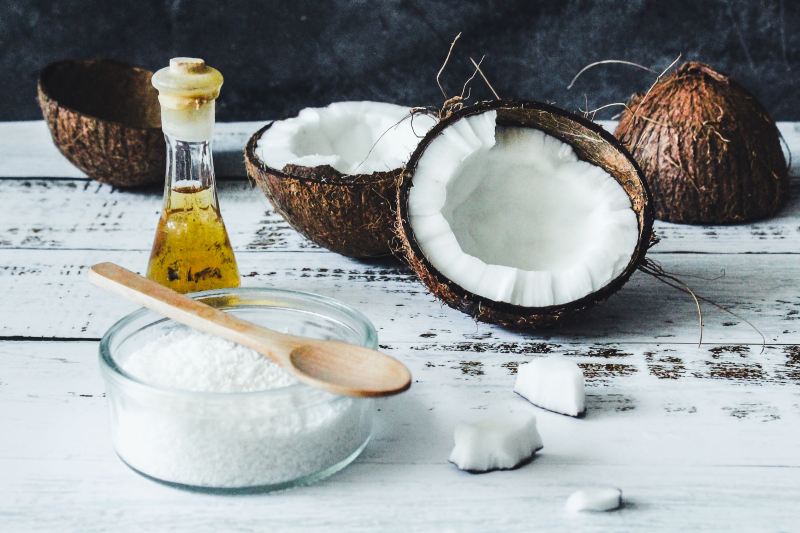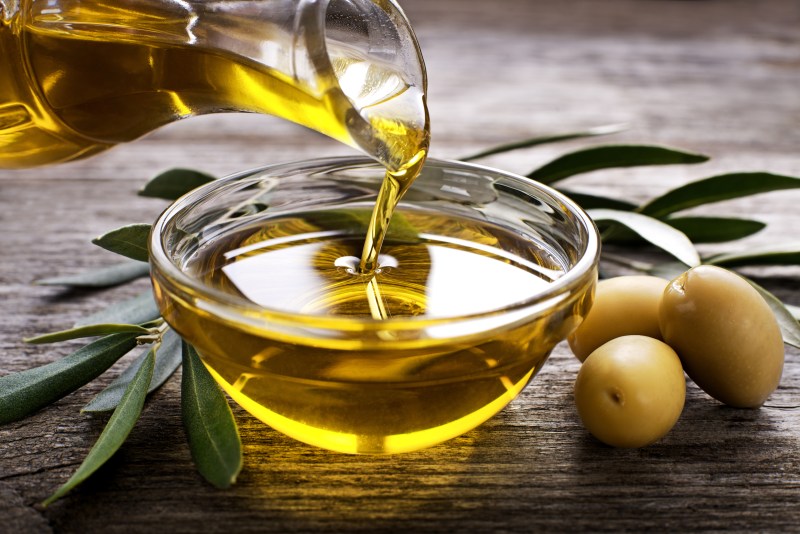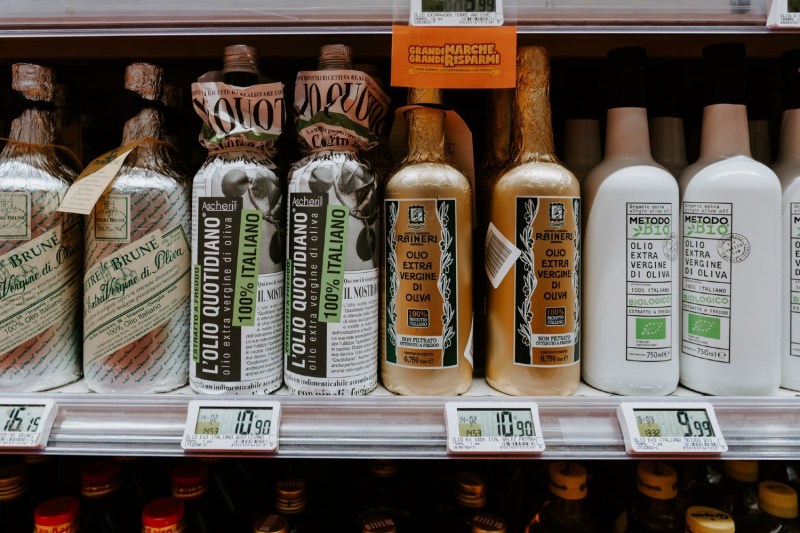
The oil aisle at the local grocery store can be overwhelming. Canola oil, olive oil, coconut oil, sunflower oil, avocado oil — the list goes on and on. If you’ve found yourself standing there wondering what the difference is, you’re not alone. Although these oils may all appear similar, their compositions are vastly different. Not to mention, each oil has its own taste and smoke points, which can affect your cooking.
With a bit of education, choosing the healthiest cooking oil at the store doesn’t have to be difficult. Here, we’ll dive into which unhealthy seed oils you should steer clear of and break down how to select a healthy cooking oil during your next grocery run.

Is vegetable oil bad for you?
Many of the cooking oils that fill grocery shelves are classified as vegetable oils. Despite their name, most of these oils contain no vegetables, whatsoever. Instead, they get this name because they are derived from plants and not any animal products (such as oil products like lard or butter). You’ve probably heard of most of these so-called “vegetable” oils, such as canola oil, corn oil, or soybean oil. These mass-produced oils are typically less expensive, but that comes with their own risks.
Vegetable oils are used everywhere, from traditional restaurant cooking to fast-food bites. However, these oils are highly refined and high in polyunsaturated fatty acids. Not only do these oils undergo a heavily refined process, but they’re high in omega-6 fatty acids, which can cause inflammation in the body. Within the vegetable oil category are seed oils, such as sunflower oil and peanut oil, also which undergo too much chemical processing.
The answer to the question, “Is canola oil healthy?” can get a bit tricky, however. Traditional canola oil is refined using a chemical solvent, making it extremely unhealthy. However, organic expeller-pressed canola oil is manually extracted from the canola plant without using chemicals. For this reason, organic expeller-pressed canola oil is typically far more expensive than standard canola oil. Like canola, sunflower oil is also high in omega-6 fats, which can worsen inflammatory conditions. So this should help answer the question, “Is sunflower oil bad for you?”

What is the healthiest cooking oil?
Although you should avoid most vegetable oils, not all of them are bad. Olive oil, coconut oil, and avocado oil are a few examples of vegetable oils that are natural. These oils make some of the greatest choices for cooking oil. Here’s why.
Olive oil
Many argue that olive oil is the healthiest cooking oil — and for good reason. Not only can
If you’re looking for the healthiest choice, look for extra virgin olive oil, the least processed form of the oil.
Avocado oil
Avocado oil has a much higher smoke point than olive oil, which ranges between 510 and 520 degrees Fahrenheit. With a high smoke point, avocado oil is an excellent oil to use for high-heat cooking like deep frying, pan frying, and sauteing. The flavor of this oil is mild with a neutral taste, making it an excellent oil to use for any type of dish. This healthy oil is also high in oleic acid, just like
Coconut oil
Unrefined coconut oil, also called virgin coconut oil, is a natural oil that offers a slight coconut taste. For a mild taste, opt for refined coconut oil that has a milder taste and scent. This healthy oil is an excellent choice for baking, substituting for recipes that call for unhealthy oils like canola. Since coconut oil has a much lower smoke point than other oils, it’s not the best oil to use for high-heat frying. Refined coconut oil will have a slightly higher smoke point than unrefined coconut oil (about 350 degrees and 400 degrees Fahrenheit, respectively).
Coconut oil is high in something known as medium-chain triglycerides (MCT), a type of saturated fat. Cooking with this oil could help activate fat burning, and is often used to help accelerate ketone production for those on a ketogenic diet. In addition, many research studies have also suggested that coconut oil may have powerful anti-inflammatory benefits as well.

Shopping for healthy cooking oils
When shopping for healthy cooking oils, consider how much you’ll truly need. Though it may be tempting to buy in bulk, most cooking oils have a short shelf life of about one to two years. After that, oils can go rancid and should not be used. As you shop, you’ll also want to look at the packaging. Opt for cooking oils packaged in glass bottles, which can keep your oil fresher than those packaged in plastic.



